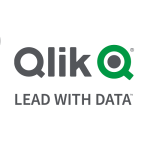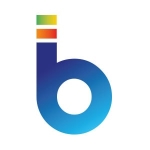I like the scheduling feature. It has an inbuilt scheduler which is very good, and it allows us to create agents, and those agents can be scheduled. It's quite flexible in that respect and goes into our IT infrastructure. The outputs are sent encrypted to various endpoints. Some are internal, and some are our clients, and it's encrypted at a high level.
I do find Oracle OBIEE flexible. If there is stuff that's not in your model or schema, it's very flexible to create SQL scripts and create the data you want. It's quite nice to create a dashboard in OBIEE, and that's pretty straightforward in the way you drag and drop everything. You can create sections, and you can add elements to your page. That bit of the interface is relatively straightforward.
The graphical capabilities could be better. They are also cumbersome, and they are limited compared to Tableau, Power BI, or even Business Objects to a certain extent and Cognos. The error logging isn't great either. The errors that come out when you schedule aren't easy to understand.
I find how they filter within a query quite cumbersome and difficult to debug if somebody else has done it. You can see as you build, and I think that's where the problem is. It doesn't lend itself to debug something. For example, if you create a formula that's quite complicated, it's not easy to understand what goes with what.
It becomes spaghetti, and it's very difficult to unpick. That's really my gripe about it, and in some ways, it's too flexible. It tries to be a Jack of all trades when it's not. I think a lot of these products, if they concentrate on trying to produce your reports, then that's fine. But when they're trying to do all sorts of other things as well, then it isn't very easy.
We get lots of support from Oracle, but I think the problem is that we get many invalid file operations. Nobody understands why. It can be a multitude of reasons, but no one reason could cause it. That's just one of the issues we've had in the last year. But the scope of reporting has gone through the roof over the previous 12 to 18 months.
We want an end-of-life OBIEE in our environment because some of the infrastructure runs unclustered. We weren't allowed to go clustered for some reason, and we never knew why. Unfortunately, going down that route means that the platform we run it on, WebLogic, has now become non-standard within our organization.
Everything's been moved off it and onto other platforms. Unfortunately, our OBIEE runs on that platform, and we're being pushed down different routes, and we don't know where we're going at the moment. Within the next two years, I don't think we'll have OBIEE in our part of the business.
In the next release, I think having the capability of being able to develop and then promote to a production environment rather than having to have separate environments will help. I know that Tableau and Power BI can be created on a desktop application, and then when it's ready to go live, you can promote it.
I have been using Oracle OBIEE for about four years, but I don't use it a lot.
Oracle OBIEE is very stable. The only issue have is scheduling too much at the same time. It can get overloaded, and unfortunately, like most things, there are always bottlenecks.
You're actually pushing it down a tunnel in effect, and if that tunnel's not large enough, it can't cope with the load. Some of the files and some reports are a lot bigger, and OBIEE has a limited 64,000 rows of output. It's not suitable for really extracting large amounts of data.
If I wanted to extract all the transactions on a report for one particular day, then that would blow the 64,000 rows of output. This means that we have to run it separately, and we can't schedule it. It has to be a manual task, or we have to get work done by our development people to provide that report as a standard report. This can be quite difficult at times.
Oracle OBIEE is scalable because you can cluster them and have multiple servers. You can spread the load up to a point. You can have multiple environments running under the same cluster. In our production space, we have two environments. We have a test environment, and we have a production environment. Being clustered, you can cluster those together.
When I used Cognos, it seemed as though it didn't cater to telling stories. It's like you've got to get the data out into something like Excel or another tool to do the visualizations. It can be done, but it's quite fiddly.
On a scale from one to ten, I would give Oracle OBIEE a seven.















